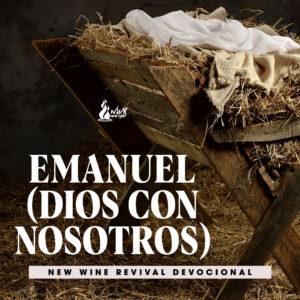
1 Corintios 12:4-11
Ahora bien, hay diversidad de dones, pero el Espíritu es el mismo. Y hay diversidad de ministerios, pero el Señor es el mismo. Y hay diversidad de operaciones, pero Dios, que hace todas las cosas en todos, es el mismo. Pero a cada uno le es dada la manifestación del Espíritu para provecho. Porque a este es dada por el Espíritu palabra de sabiduría; a otro, palabra de ciencia según el mismo Espíritu; a otro, fe por el mismo Espíritu; y a otro, dones de sanidades por el mismo Espíritu. A otro, el hacer milagros; a otro, profecía; a otro, discernimiento de espíritus; a otro, diversos géneros de lenguas; y a otro, interpretación de lenguas. Pero todas estas cosas las hace uno y el mismo Espíritu, repartiendo a cada uno en particular como él quiere.
En estos versículos el apóstol Pablo nos enseña como la trinidad actúa para capacitar a los creyente para ser mejores testigos a través de darles diferentes dones, ministerios y operaciones de servicio. En primer lugar Pablo nos dice que hay diversidad de dones, pero el Espíritu es el mismo.
Los dones del Espíritu Santo son capacidades extraordinarias que el Espíritu de Dios otorga al creyente por gracia para edificación de la iglesia. Es importante no confundir las habilidades que los seres humanos tenemos con los dones del Espíritu Santo. Existe diferencia entre los dones del Espíritu Santo y las habilidades de los hombres. Un don espiritual es aquel que sólo puede ser ejecutado por una intervención sobrenatural de Dios. Por otro lado una habilidad es una capacidad que también Dios nos ha otorgado, pero no requiere una acción sobrenatural del Espíritu Santo para que opere, tal y como la habilidad de cantar, de tocar algún instrumento musical, o la capacidad de dirigir, habilidad matemática, o de expresión, entre otras. En este texto, la palabra “dones” proviene del griego járisma (χάρισμα) el cual usualmente se traduce a carisma, y se define como aquellas capacitaciones especiales que se reparten de manera gratuita a los creyentes con el fin de que sean para provecho de la iglesia tal y como lo declara Pedro al decir:
1 Pedro 4:10
“Cada uno según el don que ha recibido, minístrelo a los otros, como buenos administradores de la multiforme gracia de Dios”.
Si nos damos cuenta todos estos dones son repartidos por el Espíritu Santo.
A continuación, el apóstol Pablo nos enumera los nueve dones del Espíritu Santo, y estos son palabra de ciencia, palabra de sabiduría, don de discernimiento de espíritus, diversidad de lenguas, interpretación de lenguas, profecía, don de fe, sanidades y don de milagros.
Estos son repartidos a la iglesia de manera soberana por el Espíritu Santo, como Él lo desea y a quien Él lo desea, de tal forma que cada creyente puede tener al menos un don de estos:
1 Corintios 12:11
“Pero todas estas cosas las hace uno y el mismo Espíritu, repartiendo a cada uno en particular como él quiere”
De acuerdo a su significado etimológico, estos dones constituyen un regalo de Dios hacia la iglesia, de tal forma que en ningún momento se puede ganar por ningún mérito humano ya que, tal y como la salvación, son por gracia y nos convertimos en herederos de todas sus promesas y dadivas desde el momento que nacemos de nuevo. Estos dones han sido dados a los creyentes para el servicio de la iglesia:
1 Pedro 4:10
“Cada uno según el don que ha recibido, minístrelo a los otros, como buenos administradores de la multiforme gracia de Dios”
Esto significa que el uso de estos dones está limitado a la edificación personal y beneficio del Cuerpo de Cristo. Por otro lado se nos pide la administración fiel de estos dones por lo que somos responsables que su uso sea con responsabilidad y lo más efectivo posible. Con respecto a este último punto, no olvidemos que nuestra santidad y consagración a Dios está directamente relacionada con la efectividad al momento de utilizar nuestros dones, y por ello el cuidado espiritual que tengamos de nosotros mismo contribuirá a ese fin. Aparte de todo esto en la Biblia encontramos un versículo que nos sugiere que los dones espirituales una vez dado al creyente como un regalo no se pueden revocar:
Romanos 11:28
“Porque irrevocables son los dones y el llamamiento de Dios”
Si los consideramos como la salvación, estos dones no deberían perderse, pero posiblemente se puede atenuar su acción en nuestra vida si nuestra consagración es poca y tenemos una vida carnal:
Efesios 4:30
“Y no contristéis al Espíritu Santo de Dios, con el cual fuisteis sellados para el día de la redención”
Oración:
Amado Dios, gracias por cada don que has dado a tu iglesia para su edificación, queremos crecer cada día en ti, y poder ver el desarrollo y la manifestación de cada don que has puesto en nuestras vidas, en el nombre de Jesús, amén.
Spiritual gifts!
1 Corinthians 12: 4-11
Now, there are different gifts, but the Spirit is the same. And there are different ministries, but the Lord is the same. And there are diversity of operations, but God, who makes all things in all, is the same. But the manifestation of the Spirit is given to each one for the common good. For to him the word of wisdom is given by the Spirit; to another, the word of science according to the same Spirit; to another, faith by the same Spirit; and to another, gifts of healings by the same Spirit. To another, working miracles; to another, prophecy; to another, discernment of spirits; to another, various kinds of languages; and to another, interpretation of languages. But all these things are done by one and the same Spirit, distributing to each one in particular as he wants.
In these verses the apostle Paul teaches us how the trinity works to enable believers to be better witnesses through giving them different gifts, ministries, and service operations. First of all, Paul tells us that there are different gifts, but the Spirit is the same.
The gifts of the Holy Spirit are extraordinary abilities that the Spirit of God grants the believer by grace for the edification of the church. It is important not to confuse the abilities that human beings have with the gifts of the Holy Spirit. There is a difference between the gifts of the Holy Spirit and the abilities of men. A spiritual gift is one that can only be executed by a supernatural intervention of God. On the other hand, an ability is a capacity that God has also given us, but it does not require a supernatural action of the Holy Spirit to operate, such as the ability to sing, to play a musical instrument, or the ability to direct, mathematical ability. , or expression, among others. In this text, the word “gifts” comes from the Greek járisma (χάρισμα) which is usually translated to charisma, and is defined as those special training that is distributed free of charge to believers in order to be for the benefit of the church as stated by Peter when saying:
1 Peter 4:10
“Each one according to the gift he has received, minister it to the others, as good stewards of the manifold grace of God.”
If we realize all these gifts are distributed by the Holy Spirit.
Next, the apostle Paul lists the nine gifts of the Holy Spirit, and these are the word of science, the word of wisdom, the gift of discernment of spirits, the diversity of tongues, the interpretation of tongues, prophecy, the gift of faith, healings, and the gift of miracles.
These are distributed to the church in a sovereign way by the Holy Spirit, as He wishes and to whom He wishes, in such a way that each believer can have at least one of these gifts:
1 Corinthians 12:11
“But all these things are done by one and the same Spirit, distributing to each one in particular as he wants”
According to their etymological meaning, these gifts constitute a gift from God to the church, in such a way that at no time can it be won by any human merit since, just like salvation, they are by grace and we become heirs of all his promises and gifts from the moment we are born again. These gifts have been given to believers for the service of the church:
1 Peter 4:10
“Each one according to the gift he has received, minister it to the others, as good stewards of the manifold grace of God”
This means that the use of these gifts is limited to the personal edification and benefit of the Body of Christ. On the other hand, we are asked for the faithful administration of these gifts, so we are responsible that their use is responsibly and as effective as possible. Regarding this last point, let’s not forget that our holiness and consecration to God is directly related to the effectiveness when using our gifts, and therefore the spiritual care that we have of ourselves will contribute to that end. Apart from all this in the Bible we find a verse that suggests to us that spiritual gifts once given to the believer as a gift cannot be revoked:
Romans 11:28
“Because irrevocable are the gifts and the calling of God”
If we consider them as salvation, these gifts should not be lost, but their action in our lives can possibly be attenuated if our consecration is little and we have a carnal life:
Ephesians 4:30
“And do not grieve the Holy Spirit of God, with whom you were sealed for the day of redemption”
Prayer:
Dear God, thank you for each gift that you have given to your church for its edification, we want to grow every day in you, and be able to see the development and manifestation of each gift that you have put in our lives, in the name of Jesus, amen.



